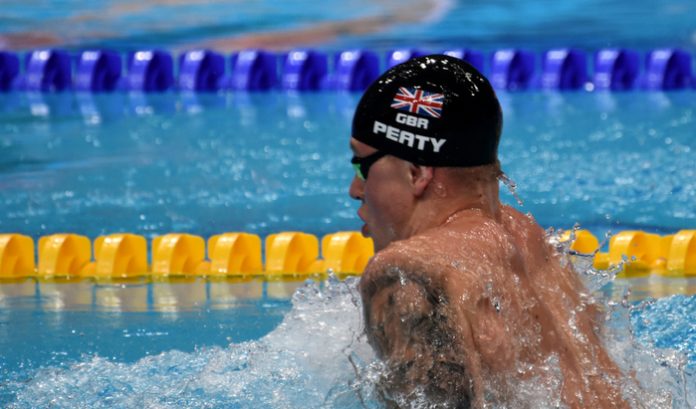The Department for Culture, Media and Sport has listened to the experiences of Olympic and Paralympic athletes supported by National Lottery funding as part of an examination for the Fourth National Lottery Licence competition.
Three-time Olympic gold medalist Adam Peaty, champion Paralympic rower Lauren Rowles and Paralympic swimmer Ellie Robinson all presented evidence to the session titled ‘What next for the National Lottery’, amid criticism of the current operator Camelot over profit growth exceeding that of contributions to good causes.
MPs quizzed the athletes on the impact that National Lottery funding had added to their professional development and access to elite sport.
The panel of athletes began by sharing their experiences of applying for the ‘Athlete Performance Awards’ provided by UK Sport, which grants funds based on an athletes’ yearly performance and estimates of future performance.
“At the start of the year, you get told what the funding policy is and how to get on to it. You are clearly told as an elite athlete that funding will be based on your performance during that year or season,” Rowles explained.
Rowles’ experience was shared by Peaty and Robinson, as the panel outlined the harsh make-or-break realities of UK Sports athlete funding structure.
Meanwhile, Peaty explained that there are accessibility issues when it comes to National Lottery funding, adding that those from working-class backgrounds benefitted less from the APAs as they were based on performance rather than financial circumstances.
Rowles and Robinson also explained their experiences with accessibility issues when it comes to National Lottery funding.
Rowles stated that the majority of governing bodies had no dedicated person promoting accessibility and that matters would only be highlighted when “shouted about by disabled athletes, who have been pushed to the back of the bus”.
As part of the inquiry into Camelot, Labour MP Kevin Brennan questioned the athletes on their knowledge of the National Lottery’s stewardship under Camelot UK.
Consequently, Brennan highlighted national audit reports that “returns for good causes in 2017 were only 2% higher in 2017 than they had been in 2009, whereas in the same period Camelot’s profits were 122% higher?”
Peaty, who currently holds three world records, responded: “I read about this a few days ago, it’s hard because it’s gambling. Are we funded to make them look good?
“I think if we’re doing that then there should be more funding. If your profits are going up by 120% and good causes are only going up by 2%, then it doesn’t take anyone with two brain cells to go ‘hold on a minute, what’s going on here?’ Camelot or whoever gets the next award… there needs to be more back to society.”
Agreeing with Peaty’s response, the SNP MP John Nicholson was astounded that athletes felt pressured to ‘pay homage to a greedy Camelot’ during interviews.
He said: “The fact you are instructed to obsequies on camera, made me feel terribly uncomfortable because at the end of the day this is funded by gambling and we know that gambling is funded by the poorest people in society and in the poorest areas of society.”
Subsequently, Nicholson asked the panel whether they ‘felt orchestrated to feel cheery and happy about sports funding being relied upon by gambling”.
Peaty responded: “I think it’s hard. It’s a societal problem really. Camelot obviously uses good causes, uses the national lottery funding, to gamble.
“Yes, it’s great that we get this funding but there needs to be more accountability and more of a clear vision of where the money is actually going and the story they are telling.”
Finally, Rowling expressed her fears about the future of sports funding from the National Lottery, explaining that there are worries about the National Lottery appealing to younger generations to aid sports funding.
She said: “You’re constantly reminded that the National Lottery fund this and there’s also a fear that where does the National Lottery go?
“My generation doesn’t play the National Lottery, it’s my Nan and my Mum. People my age don’t play, so there’s a fear of where that goes.”



























